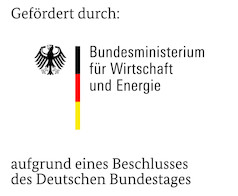BOLeRo - Behavior Optimization and Learning for Robots¶
BOLeRo makes behavior learning for robots easy. It combines behavior learning algorithms with learning problems through defined interfaces that can be used by a controller. The whole communication between a behavior and an environment is done by requesting actions generated from the behavior and sensory information generated by an environment. The highlights of BOLeRo are
|
Documentation¶
Funding¶
BOLeRo was initiated and is currently developed at the Robotics Innovation Center of the German Research Center for Artificial Intelligence (DFKI) in Bremen, together with the Robotics Group of the University of Bremen. BOLeRo has been funded by the German Federal Ministry for Economic Affairs and Energy. BOLeRo has been used and/or developed in the projects BesMan, LIMES, and COROMA.


